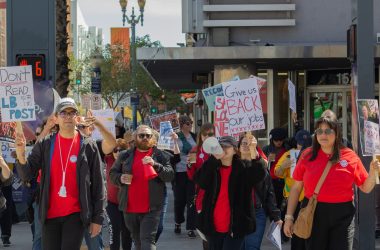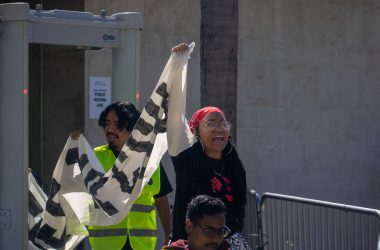Affirmative action, which is already banned in California and seven other states, may be banned on the federal level by the Supreme Court as the justices review Students for Fair Admissions v. Harvard.
Arguments for this case were heard before the Court on Monday, Oct. 31, where the plaintiff, SFFA, argued affirmative action was unconstitutional, claiming Harvard favored/disfavored certain applicants on the basis of race.
Affirmative action currently allows universities, employers and government agencies to use race as one of the many factors when deciding to accept an applicant. This policy, which was established in the landmark Supreme Court case Bakke in 1978, recognized the disadvantage of certain racial minority groups in terms of access to higher education and jobs.
Jason Whitehead, a political scientist and associate professor at Long Beach State, said affirmative action has allowed institutions to factor in obstacles that are not apparent on a person’s application.
“[Affirmative action] has real results in terms of the ability of minorities to compete with white and other candidates in the broader marketplace,” Whitehead said.
However, Students for Fair Admissions, an anti-affirmative action organization, has long claimed that the use of race in applications to universities has put other racial groups at a disadvantage.
Currently, Students for Fair Admissions argues that Harvard violates Title VI of the Civil Rights Act, claiming that “Asian Americans are less likely to be admitted than similarly qualified white, Black, or Hispanic applicants.”
“Harvard gives racial preferences based on the box that applicants check, even if they never write about race or explain how it influences their views,” said Cameron T. Norris, the lawyer on behalf of SFFA. “For competitive applicants, checking the right racial box is an anvil on the admissions scale.”
Conservative justices on the Court view the issue of race on the basis of traditional discrimination, while liberal justices have observed the issue on a broader scope.
“The conservatives have a more constrictive understanding what racism is all about,” Whitehead said. “Because of that, they’re calling for an end to these programs.”
Affirmative action has been banned in California since voters passed Proposition 209 in 1996. Whitehead said California could be viewed as the model of the effects of ending affirmative action, observing the enrollment rates of Black and Latino students in UC schools.
“In the six years after the passage of Prop 209 the proportion of African American students enrolled in UCs from California fell from 6.4% to 3.6%,” Whitehead said, adding that California is a “good test case” of the effects of ending affirmative action.
Whitehead predicts similar patterns would be seen on a national level should the Supreme Court end affirmative action entirely.
“When we take race out of the equation, when we’re not allowed to consider it at all in California, that’s the kind of drop that happens, and that’s what we’re likely to see,” Whitehead said.




